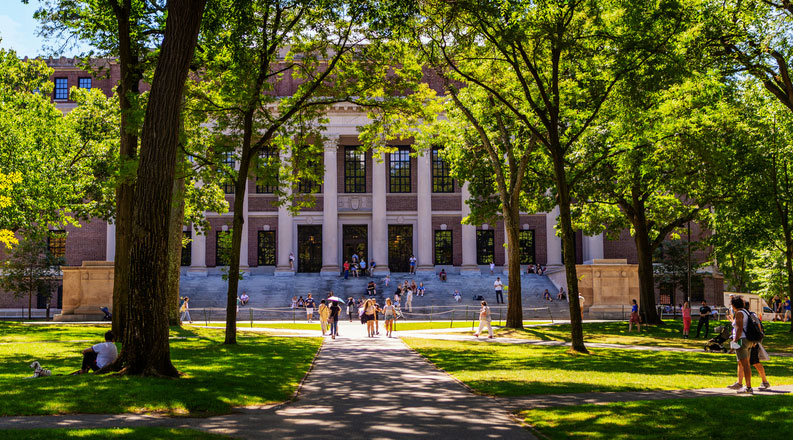Written by Dr. Emily R. Thornton, PhD, LCADC , Last Updated: November 6, 2025
Substance abuse counseling students can access substantial funding, including federal grants, professional organization scholarships ($500-$15,000 each), school-specific awards, and service-based loan repayment programs that can reach $50,000-$100,000 for qualifying commitments.
Table of Contents
- Exploring All Your Financial Aid Options
- Understanding the FAFSA Process
- Financial Aid Application Timeline
- Scholarship Options for Substance Use Disorder Programs
- Top Scholarships Comparison
- Loan Repayment Programs
- Work-Study & Alternative Funding
- Scholarship Application Tips
- Finding State-Specific Resources
Addiction counseling jobs are tremendously rewarding when it comes to the work you do. In terms of paychecks, you’ll make a solid middle-class income that you can be proud of, but it won’t afford you the high-flying Instagram model lifestyle.
It’s also true that people drawn to these positions aren’t always coming from the kind of backgrounds where college savings for the kids were in the budget.
The most effective and most driven substance abuse counselors often have a history of addiction themselves, or come from families that know the pain of substance abuse all too well.
If you found your way here to this guide, it’s a safe bet that you and your family don’t have the financial resources to cut tuition checks two or three times a year without blinking. With the typical annual cost of university studies coming in at over $20,000 according to 2023 data from the National Center for Education Statistics, you’re going to need help when it comes to paying for the degree required to get your counseling license.

This guide will explain your financial aid options and offer direct suggestions on available scholarship, grant, and loan-forgiveness programs for addiction counseling students.
Exploring All Your Financial Aid Options as a Substance Abuse Counseling Student

You’re not alone when it comes to paying for college. In 2021, NCES found that almost 40 percent of first-time, full-time undergraduate students used some form of student loan. Since a big chunk of those individuals probably already received grant money to help pay for school, that suggests there was still a gap between what they could afford and what they had to pay.
The average amount of student loans taken out by undergraduate students in 2021 was $7,700.
Fortunately, there’s a lot of help out there to close that gap. That assistance generally comes from three different buckets:
- Grants
Free financial assistance, typically directly from the state or federal governments, or your college itself, based on financial need. Pell grants or Federal Supplemental Educational Opportunity grants are examples of this aid.
- Scholarships
Similar to grants, which offer money to help pay for your schooling with no repayment required, scholarships typically have additional requirements beyond financial need. These can include belonging to qualifying ethnic groups, competing in essay challenges, or pursuing particular fields of study.
- Loans
Loans have few requirements other than obligating you to pay the money back, with interest, after graduation. Almost anyone can qualify for student loans, which are offered both by private entities and the government, but with different terms. Some substance abuse counseling jobs may be eligible for loan forgiveness in return for working in some high-need regions.
Both grants and scholarship awards may involve keeping a certain minimum GPA and staying enrolled in school. Failure to comply with the terms may mean you need to pay the money back.
Understanding the FAFSA Process and Timeline
Instead of trying to decipher all these funding sources and requirements yourself, your best bet is to get cozy with your school’s financial aid office as soon as possible. The first critical step is filing a FAFSA (Free Application for Federal Student Aid), which provides schools and federal agencies with the data needed to figure out your eligibility for various funding.
What the FAFSA Unlocks
Completing the FAFSA is your gateway to multiple funding sources:
- Federal Pell Grants (up to $7,395 for 2024-2025)
- Federal Supplemental Educational Opportunity Grants (FSEOG)
- Federal Work-Study opportunities
- Federal Direct Loans with lower interest rates
- State grant programs (many states use FAFSA data)
- School-specific aid packages
Common FAFSA Mistakes to Avoid
- Missing the priority deadline (file as early as possible)
- Using estimated tax information instead of filing early
- Not listing all the schools you’re considering
- Forgetting to sign the form electronically
- Not completing verification requests from your school
Most students end up using a combination of all three funding types to complete a degree in addiction counseling. While it’s possible to find scholarships that cover the entire cost of attendance, those are very rare. It’s much more common to put multiple smaller scholarships together, often with government grants, and take up the slack with some combination of loans and your own or your family’s money. You may even have access to other funding sources, like the GI Bill®, if you or one of your parents is a qualified veteran.
Financial Aid Application Timeline: When to Apply for Maximum Funding
Timing is everything when it comes to securing financial aid. Many funding sources operate on a first-come, first-served basis, even if they have later deadlines. Here’s your month-by-month guide:
October – December (Year Before Enrollment)
- October 1: FAFSA opens for the next academic year
- Early action: File FAFSA as soon as possible after October 1
- Research: Start compiling a list of scholarships with spring deadlines
- Essays: Begin drafting scholarship essay responses
January – March
- Priority deadlines: Many schools’ priority FAFSA deadlines fall in this window
- State grants: Check your state’s specific deadline (some as early as March 1)
- Scholarship season: Peak application period for many private scholarships
- School applications: Complete any remaining college applications
April – June
- Award letters: Schools send financial aid offers
- Compare packages: Evaluate total aid from each school
- Negotiate: Contact financial aid offices to appeal or negotiate awards
- Accept aid: Accept or decline loans and grants by school deadlines
Summer
- Continue applying: Many summer scholarship deadlines are still available
- Entrance counseling: Complete loan entrance counseling if accepting loans
- Work-study: Apply for campus work-study positions
💡 Pro Tip: Set up a dedicated email folder for financial aid correspondence and create a spreadsheet tracking all deadlines, requirements, and application statuses.
Scholarship Options for Students in Substance Use Disorder and Related Degree Programs

You have a wealth of scholarship options to help you pay for college degrees in substance abuse counseling.
Many scholarships aimed at counseling or behavioral health studies more generally are also available to students of addiction counseling degree programs.
There are various sources for these forms of financial assistance, so we’ve broken the list down by category. That will help you narrow down where to look and understand how individual recipients are often chosen.
Individual Scholarships for Mental Health or Substance Abuse Counseling Degrees
These awards are often smaller than those that come from the big professional groups. Still, in a sense, they’re more meaningful: they’re typically funded directly by people who have lost loved ones to addiction and overdose.
There are really too many of these to list, and they come and go frequently. But one typical example is the Brian J. Boley Memorial Scholarship. It’s aimed at high school seniors or undergraduate students who are just starting on their path to mental health or addiction counseling. This award is for $500 in memory of a young man who passed away at 21 from mental illness and addiction.
Many of these are restricted to states or areas where the individual being recognized was from, but some are also awarded nationally. You’ll need to sort through the options available in your area and for your school.
Colleges and Universities Offer Generous Scholarships for Addiction Counseling Students

Many of the best scholarships come from individual colleges or universities that offer degrees in substance abuse counseling. School-specific endowments often establish these, so they aren’t open to students in other programs. That’s a significant advantage if you meet the eligibility requirements, because it significantly reduces competition. More than likely, you’ll meet the criteria for at least some of the awards offered through the school you attend.
There’s no master list for scholarships at individual colleges, but even before you’re enrolled you can explore the options available at the schools you’re considering.
It’s another reason your school’s financial aid office should be your first stop in searching for economic resources. They’ll know better than anyone what kind of opportunities you’ll be eligible for that are unique to their university.
How to Work With Your Financial Aid Office
Your financial aid office is your most valuable resource, but many students don’t use it effectively. Here’s how to maximize this relationship:
- Schedule early appointments: Don’t wait until the last minute., Book appointments months before deadlines.
- Come prepared: Bring your FAFSA confirmation, tax documents, and list of questions.
- Ask about hidden opportunities: Many schools have little-known scholarships with few applicants.
- Update them on changes: Job loss, medical expenses, or family changes may qualify you for more aid.
- Request appeals: If your financial situation changed after you filed the FAFSA, ask about professional judgment reviews.
- Check in annually: Renewal requirements and new opportunities emerge each year.
Addiction Treatment Organizations Offer Lucrative Assistance to Lucky Students
Both private addiction treatment companies and large nonprofit organizations focused on addiction treatment offer scholarships to help students enter the workforce. These are often among the easiest scholarships to find, but they may require additional commitments. You may need to be a member of the organization or be attending a specific type of addiction therapy program.
On the other hand, they’re often well-funded and can wipe out a big chunk of your expenses if you’re awarded one.
Beware Substance Abuse Scholarships That Are Not Educational Scholarships

It won’t surprise you that many of the populations that are most in need of substance use disorder therapy are those that are least able to pay for it. Many benefit and assistance programs exist to help those folks get the kind of treatment they need, and that you may eventually offer.
Confusingly, though, some of these programs are also called scholarships. So when you’re out searching for scholarships for students earning addiction counseling degrees, many of the results you pull up won’t be for you at all.
These scholarships are usually offered by state or federal government agencies or nonprofit organizations to support SUD rehabilitation.
While valuable for folks getting much-needed treatment, these are mostly a distraction for students who are looking for financial assistance in degree programs in substance abuse counseling. Be cautious when searching and make sure the offer you’re looking at is for a school, not a rehab facility.
Top Scholarships for Addiction Counseling Students: Quick Comparison
Here’s a side-by-side look at some of the most valuable scholarships available specifically for substance abuse counseling students (2024-2025 award year):
| Scholarship Name | Amount | Level | Key Requirement |
|---|---|---|---|
| NAADAC/NBCC Minority Fellowship | $15,000 | Master’s | Minority students and underserved communities focus |
| American Addiction Centers Scholarship | $5,000 / $2,500 | Both | Essay competition |
| FHE Health “Hope for Healing” | $5,000 each | Both | Essay on career motivation |
| Elements Behavioral Health | $10,000 total | Undergrad | Essay challenge, 1st/2nd/3rd place |
| NAADAC William L. White | $1,000-$2,000 | Both | Research paper on assigned topic |
| APA Predoctoral Fellowship | Varies (substantial) | Doctoral | Communities of color service commitment |
Note: Scholarship amounts and availability change annually. Always verify current details on official program websites before applying.
Detailed Scholarship Opportunities
American Addiction Centers Behavioral Health Academic Scholarship
Offered intermittently, this scholarship is a $10,000 award split into one $5,000 and two $2,500 awards to students enrolled in nursing, counseling, psychology, social work, MFT, or other programs focused on substance use disorder treatment. It can be applied to graduate or undergraduate studies, with an essay question as the primary factor.
NAADAC/NBCC Minority Fellowship Program
Funded by SAMHSA, the Association for Addiction Professionals, and the National Board for Certified Counselors, the program has combined to offer up to 43 master’s degree counseling fellowships of $15,000 each for addiction counseling students focused on services for underserved minority communities. In keeping with the generosity of the award, standards and requirements are strict, including a commitment to a full-time course load and completion of at least one semester of your master’s program before applying.
APA Predoctoral Fellowship in Mental Health and Substance Abuse Services
Not everyone advances to the doctoral level in substance abuse counseling, but for those who do, this fellowship offers exceptional financial support. For up to three years of your postgraduate studies, this fellowship provides travel support, dissertation support, additional training opportunities, and financial assistance. It’s aimed at students who intend to focus on services to communities of color and require a commitment of at least 2 years of post-graduation service in that capacity. You also must attend an APA-accredited program.
NAADAC William L. White Scholarship
Another option from the Association for Addiction Professionals is this two-track award, delivering $1,000 to one undergraduate student and $2,000 to one graduate student each year. The scholarship is designed to promote more research in addiction studies, and so it’s competitive based on the best paper on an assigned topic. Winners are also recognized at the NAADAC annual conference, which means this scholarship can boost not only your education but also your job opportunities.
“The Hope for Healing” FHE Health Annual College Scholarship
FHE Health, a Florida-based behavioral health provider, awards an annual scholarship to one graduate and one undergraduate student in mental health or addiction studies. The scholarship awards $5,000 to individuals who submit the best essay on why they’re pursuing substance abuse counseling as a career and how they plan to contribute to the field.
Elements Behavioral Health College Scholarship
Another essay-based scholarship for behavioral health students, this offering awards $10,000 to 1st-, 2nd-, and 3rd-place winners in undergraduate programs of any type. Although your major isn’t restricted, the essay challenge is typically focused on addiction and substance use disorder. That should immediately make you a top contender.
Success Story: From Multiple Scholarships to Loan-Free Graduation
“I cobbled together seven different scholarships ranging from $500 to $5,000, combined them with a Pell Grant and work-study position, and graduated with my bachelor’s in addiction counseling completely debt-free. It took organization and a lot of essay writing, but it was worth every hour I spent on applications.”
— Maria T., Licensed Substance Abuse Counselor, working in rural New Mexico
Taking Advantage of Extensive Loan Repayment Programs Open to Substance Use Disorder Counselors

With strong demand for substance abuse counselors nationwide, many government agencies responsible for addressing the addiction crisis have been looking for ways to expand the pipeline for SUD education. At the same time, they want to direct those newly trained counselors to the parts of the country that need them the most.
One of the major levers they’re using to accomplish both goals at the same time is loan-repayment programs.
These apply only if you have eligible, outstanding loans used toward your addiction counseling degree. But the advantage is that, unlike scholarships, you’re guaranteed to receive the award if you qualify.
That award is the subsidized repayment of some or all of your outstanding college loans. In return, you generally have to work as a SUD counselor for marginalized populations or in areas that have few counseling resources available.
Public Service Loan Forgiveness (PSLF)
The biggest program in the loan forgiveness game is PSLF, part of the larger Federal student aid system. It’s not tied to any specific type of degree or even to substance abuse counseling jobs. Instead, it’s based on your employer after graduation. These can be government agencies or nonprofit organizations, including many that offer substance use disorder counseling services. You must also have a qualifying loan and be working full-time. The program doesn’t kick in immediately. You need to have made at least 120 qualifying monthly payments, after which the remaining balance on your loan will be forgiven.
NHSC Substance Use Disorder Workforce Loan Repayment Program
The National Health Service Corps offers up to $50,000 for full-time or $37,500 for part-time service toward loan repayment for individuals in substance abuse counseling who provide outpatient services to clients living in a health professional shortage area (HPSA) designated by HRSA (Health Resources and Services Administration). You’ll need to serve there for at least two years. One catch with this program is that you’ll have to be cross-licensed as an LPC or LCSW to be eligible, which means you’ll need at least a master’s degree.
NHSC Rural Community Loan Repayment Program
NHSC also runs a broader loan-repayment program to boost staffing in underserved rural areas across various healthcare professions. SUD counselors are specifically covered under this program, with no cross-licensing required for this particular track. It will repay up to $100,000 for full-time or $50,000 for part-time service of three years at an approved rural treatment facility. Those include SAMHSA-certified opioid treatment programs, community health centers, clinics, private practices, and even school-based clinics. Check your state’s specific license and credential requirements, as eligibility criteria may vary by location.
State Loan Repayment Program (SLRP)
Finally, you can check into the NHSC’s state-based loan repayment program. Not all states participate, but in those that do, SUD counselors may be eligible for loan repayment assistance after serving a minimum of 2 years in an HPSA in that state.
Work-Study & Alternative Funding Sources for Counseling Students
Beyond traditional scholarships and loans, several alternative funding pathways can help reduce your education costs:
Federal Work-Study Programs
Work-study allows you to earn money while gaining relevant experience. Many colleges offer work-study positions in:
- Campus counseling centers as peer mentors or administrative support
- Research labs studying addiction and recovery
- Student wellness programs and prevention initiatives
- Community partnerships with local treatment facilities
Work-study earnings don’t count against your financial aid eligibility for the following year, making it more advantageous than regular part-time work.
Employer Tuition Assistance
Many healthcare organizations and treatment facilities offer tuition assistance or reimbursement programs. If you’re already working in a related field (case management, peer support, healthcare), ask about:
- Tuition reimbursement programs (often $5,000-$10,000 annually)
- Service commitments in exchange for education funding
- Flexible scheduling to accommodate class attendance
- Professional development budgets for certifications
Community College Transfer Pathways
Starting at a community college can cut your total education costs by 30-50 percent. Many community colleges now offer:
- Associate degrees in addiction counseling or related fields
- Guaranteed transfer agreements with four-year universities
- Lower tuition rates (often under $5,000 per year)
- Evening and online options for working students
Income-Share Agreements (ISAs)
ISAs remain rare in addiction counseling programs specifically, though some graduate programs in broader behavioral health fields are beginning to offer this option. With an ISA, you pay a percentage of future income for a set period instead of taking traditional loans. These typically involve paying 3-8% of your income for 5-10 years, but only if you earn above a minimum threshold.
Military and Veteran Benefits
If you’re a veteran or dependent of a qualified veteran, you may have access to:
- GI Bill® benefits covering full tuition at public universities
- Yellow Ribbon Program for private school attendance
- VA Vocational Rehabilitation for service-connected disabilities
- Dependent education benefits (Chapter 35 or Fry Scholarship)
Scholarship Application Tips: How to Stand Out and Win Awards
Applying for scholarships is a numbers game, but strategy matters. Here’s how to maximize your chances of winning:
Essay Writing Strategies
Most addiction counseling scholarships require essays. Make yours memorable:
- Open with impact: Start with a compelling story or statistic that shows why addiction counseling matters
- Show, don’t tell: Use specific examples from your life or volunteer experience
- Connect personally: Explain your authentic connection to the field (recovery, family impact, community need)
- Demonstrate knowledge: Reference current issues in addiction treatment (MAT, harm reduction, dual diagnosis)
- Be specific about goals: Outline exactly what population you want to serve and why
- Proofread ruthlessly: Have multiple people review your essay for errors and clarity
Common Essay Prompts You’ll Encounter
Prepare responses to these frequent questions:
- “Why do you want to become an addiction counselor?”
- “Describe a time you made a difference in someone struggling with substance use.”
- “What unique perspective do you bring to addiction counseling?”
- “How will you address the opioid crisis in your community?”
- “Discuss a challenge you’ve overcome and how it prepared you for this career.”
Letters of Recommendation
Strong recommendation letters can make or break your application:
- Ask early: Give recommenders at least 4-6 weeks’ notice
- Choose wisely: Select people who know your work in relevant contexts (professors, supervisors, volunteer coordinators)
- Provide context: Give recommenders your resume, essay draft, and scholarship details
- Suggest themes: Gently guide them to highlight specific strengths relevant to addiction counseling
- Follow up: Send a polite reminder one week before the deadline
- Say thank you: Send a handwritten note after they submit the letter
Building a Competitive Profile
Start developing these credentials early in your academic journey:
- Volunteer experience: Crisis hotlines, recovery support groups, community health initiatives
- Relevant work: Even entry-level positions in treatment facilities strengthen your application
- Academic performance: Maintain a strong GPA, especially in psychology and counseling courses
- Professional memberships: Join student chapters of NAADAC or state addiction counselor associations
- Conferences and training: Attend addiction counseling conferences or webinars when possible
Finding State-Specific Scholarship and Grant Resources
State and local funding opportunities can be incredibly valuable, but they’re harder to find than national programs. Here’s your search strategy:
State Professional Associations
Almost every state has a professional association of addiction counselors that may offer scholarships. Search for “[Your State] Association of Addiction Professionals” or “[Your State] Addiction Counselor Association.” For example:
- Texas Association of Addiction Professionals offers multiple scholarships
- California Consortium of Addiction Programs and Professionals (CCAPP) has several awards
- State chapters often have lower application volumes, improving your odds
Student memberships in these organizations are typically inexpensive ($25-$75 annually) and often required for scholarship eligibility.
State Department of Health Resources
Many state health departments offer scholarships to build the behavioral health workforce. Search your state’s Department of Health or Department of Behavioral Health website for programs like:
- Health Service Corps scholarships require rural or underserved area service
- Workforce development grants for addiction counselors
- Loan repayment programs for in-state practice commitments
The Colorado Health Service Corps Scholarship Program for Addiction Counselors is one example, requiring that you be a Colorado resident, pursuing an addiction counseling license, and committing to working in an HPSA in Colorado after graduation.
Regional Treatment Provider Networks
Large regional treatment providers sometimes offer scholarships or employment-education programs. Check with major providers in your area about:
- Educational partnerships with local universities
- Internship-to-employment programs that cover tuition
- Part-time work with tuition reimbursement benefits
State Higher Education Agencies
Your state’s higher education commission or board may offer grants for students pursuing high-need careers. Search for “[Your State] Higher Education Assistance” or similar terms. These agencies often administer:
- State-specific need-based grants beyond federal Pell
- Career pathway scholarships for healthcare and behavioral health
- Transfer student scholarships for community college graduates
For comprehensive information on state-specific requirements and resources, check our state-by-state guides to addiction counselor licensing and certification.
Other Funding Opportunities Beyond Addiction Counseling-Specific Awards

Like any American college student, you’re likely to find many more general funding opportunities on your menu based on a whole range of different factors:
- Where you live or grew up, as with scholarships for graduates from particular high schools or offered by local businesses
- Your ethnicity or gender
- From the military, if your parents served, or possibly from businesses where they currently work
- Other various competitive awards from your school or in your state for essay writing, grades, or other academic accomplishments
A particular subset of these scholarships that may be of interest is those aimed at individuals who have gone through challenges themselves in mental health or substance use disorders. The demographics of SUD counselors include a significant number of folks who are interested in the field because they themselves have received help with addiction.
If that’s the case, then scholarships like the Cade Reddington Be the Light Scholarship can give you another lift. Offering $1,000 each to two awardees who have been directly or indirectly affected by substance use, addiction, or mental health struggles, it’s a poignant reminder that not everyone survives to go to college. It also serves as a reminder of those who will need your help in the future.
It’s essential to keep in mind that all forms of school funding are somewhat competitive and also change from year to year. You’ll want to stay up to date on the opportunities available and not hesitate to submit your applications promptly.
⚠️ Important Note: Scholarship amounts, eligibility requirements, and deadlines change frequently. Always verify current information directly on the official scholarship or program website before applying. This guide was last updated in November 2025.
Key Takeaways
- Start early with FAFSA: File as soon as possible after October 1 for priority consideration and maximum aid eligibility.ty.
- Combine multiple funding sources: Most students use 3-5 different scholarships, plus grants and work-study, to cover costs.
- Don’t overlook school-specific awards: College-based scholarships often have less competition than national programs. rams
- Loan repayment can erase debt: NHSC and PSLF programs offer up to $100,000 forgiveness for service commitment .ments
- State resources are underutilized: Check state professional associations and health departments for local opportunities.
- Work with financial aid offices: They’re your best resource for navigating the process and finding hidden opportunities
Ready to Start Your Journey as a Substance Abuse Counselor?
Now that you know how to fund your education, explore our complete guide to degree options, state requirements, and career paths in addiction counseling.
2024 US Bureau of Labor Statistics salary and employment figures for Substance Abuse, Behavioral Disorder, and Mental Health Counselors reflect state and national data, not school-specific information. Conditions in your area may vary. Data accessed November 2025.







